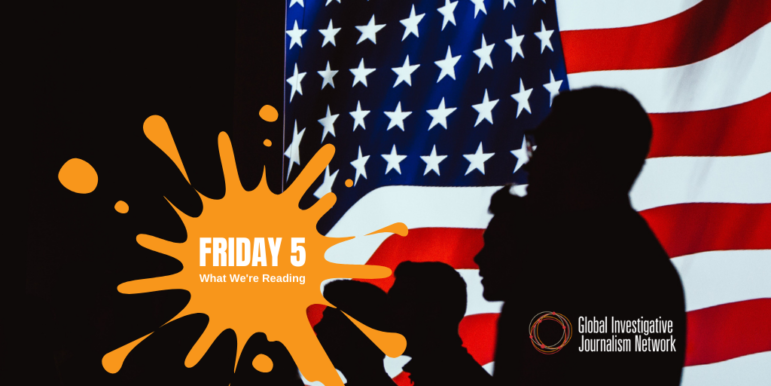
For this week’s Friday 5, where GIJN rounds up key reads from around the world, we found stories about freelancers commissioned to write for a massive Russian-backed disinformation campaign, how to (not) get your pitch read by an editor, the need to fact-check books, and a guide for reporting on the US election.
Fact-Checking Is Essential to Nonfiction. Why Do Publishers Refuse to Do It? (Esquire)
Journalists often turn to books by specialists as primary sources. But many might be surprised to learn that most publishers don’t fact-check nonfiction books — something de rigueur for respectable magazines in the not-so-distant past. Author Emma Copley Eisenberg writes in Esquire about how most nonfiction books are not fact-checked and, if they are, it is at the author’s expense. The amount Eisenberg paid — and the number of mistakes the young fact checker she hired found — could bring up your lunch. “The larger the mistake the harder it is for the writer to see it,” one author told her. If you’ve ever done fact-checking on an in-depth piece or been on the receiving end of a good fact-checker, you know just how easy mistakes can creep in. A good reminder for us all to fact check, fact check, and then fact check again.
ProPublica’s Rachel Glickhouse and Jessica Huseman have produced a handy reporting guide on mail-in voting in the US elections, full of practical tips and background. Also worth checking out: the American Press Institute’s tips on covering election disinformation, fueled by the finding by First Draft and ProPublica that nearly half of top-performing Facebook posts that mention mail-in voting are false or misleading. And check out the Trusting News tip on FAQs on election coverage as well as Storybench’s Election Tracker 2020, which covers media reporting trends. Sneak preview: Next week GIJN will add its own Election Watchdog Alert, with a daily stream of the best tips and tools for covering the pivotal US contest. Look for us on Twitter under #ElectionWatchdog.
 Tanya Pampalone is GIJN’s managing editor. She was executive editor of the Mail & Guardian and head of audience development at the African arm of The Conversation. Tanya contributed to Southern African Muckraking and Unbias the News, and is executive producer of the podcast One Night in Snake Park, which was released in September.
Tanya Pampalone is GIJN’s managing editor. She was executive editor of the Mail & Guardian and head of audience development at the African arm of The Conversation. Tanya contributed to Southern African Muckraking and Unbias the News, and is executive producer of the podcast One Night in Snake Park, which was released in September.
